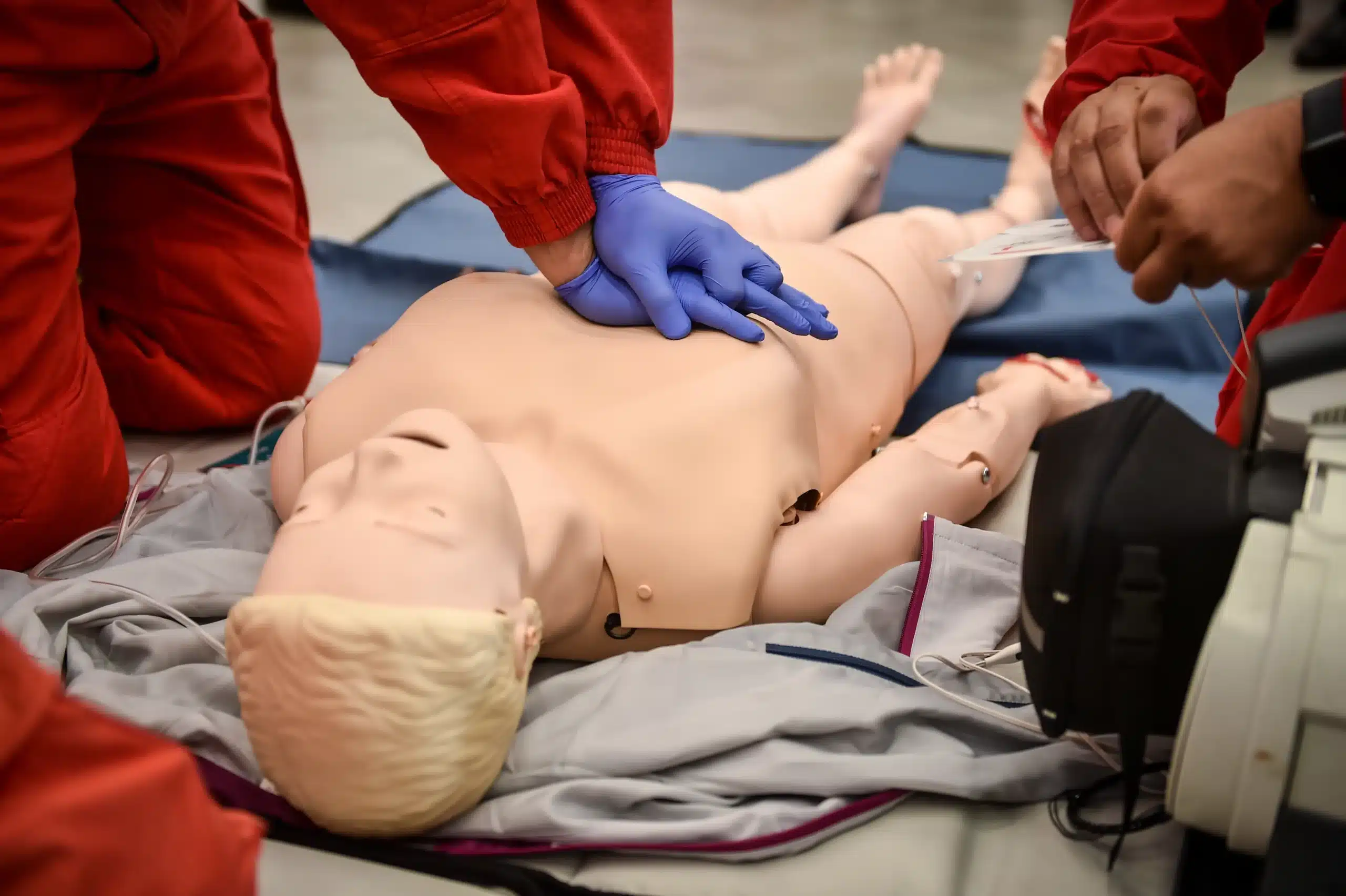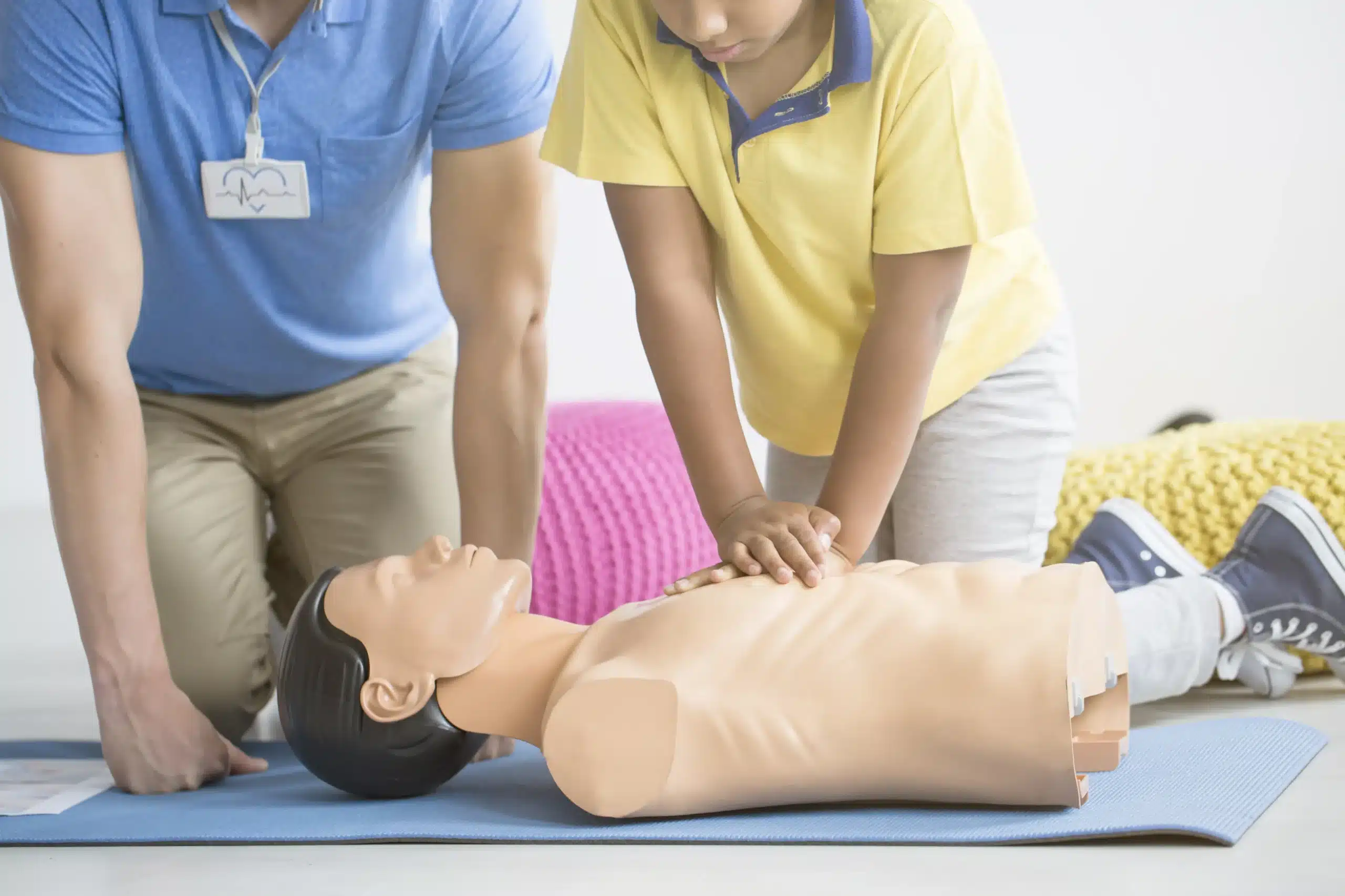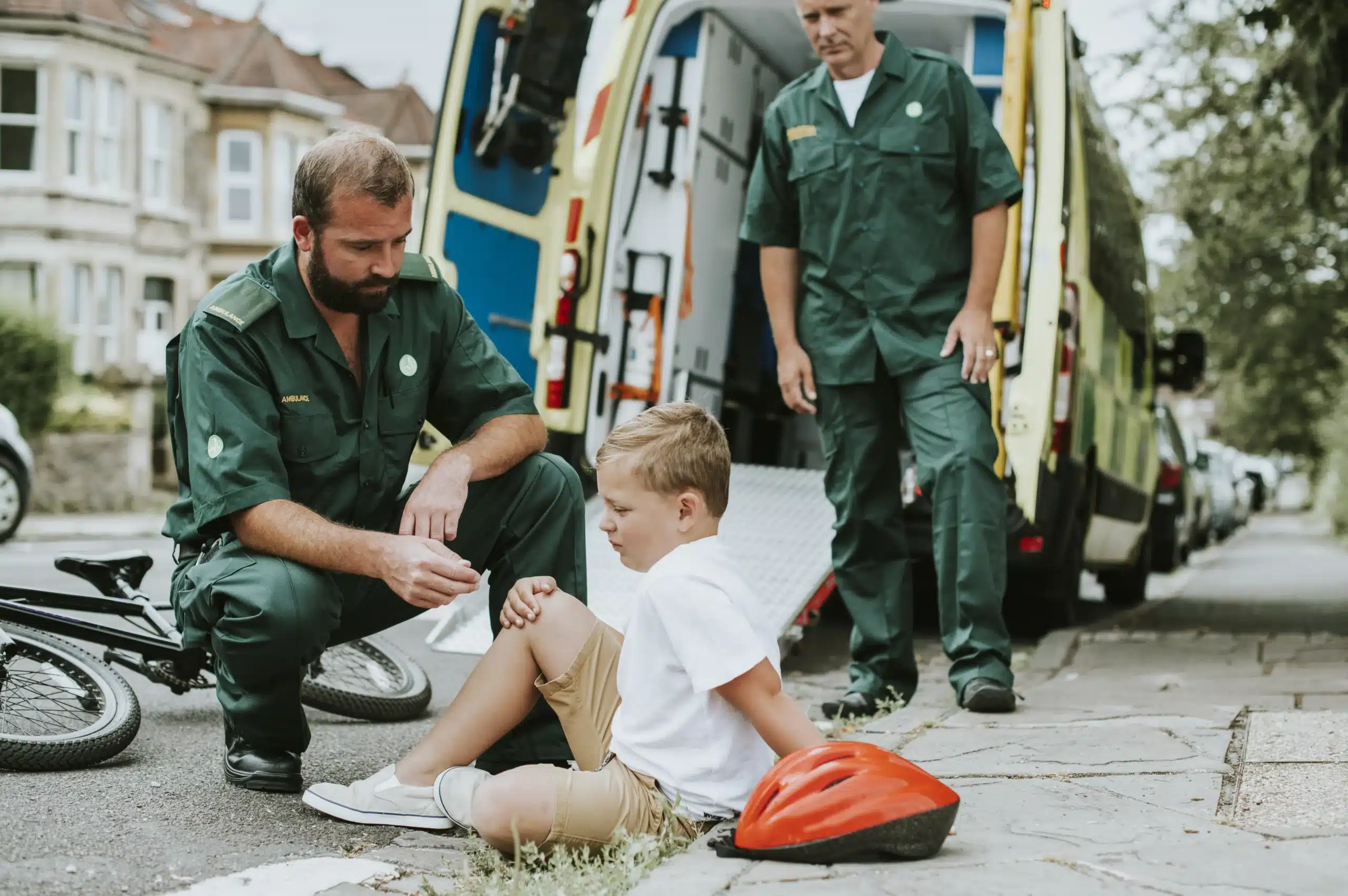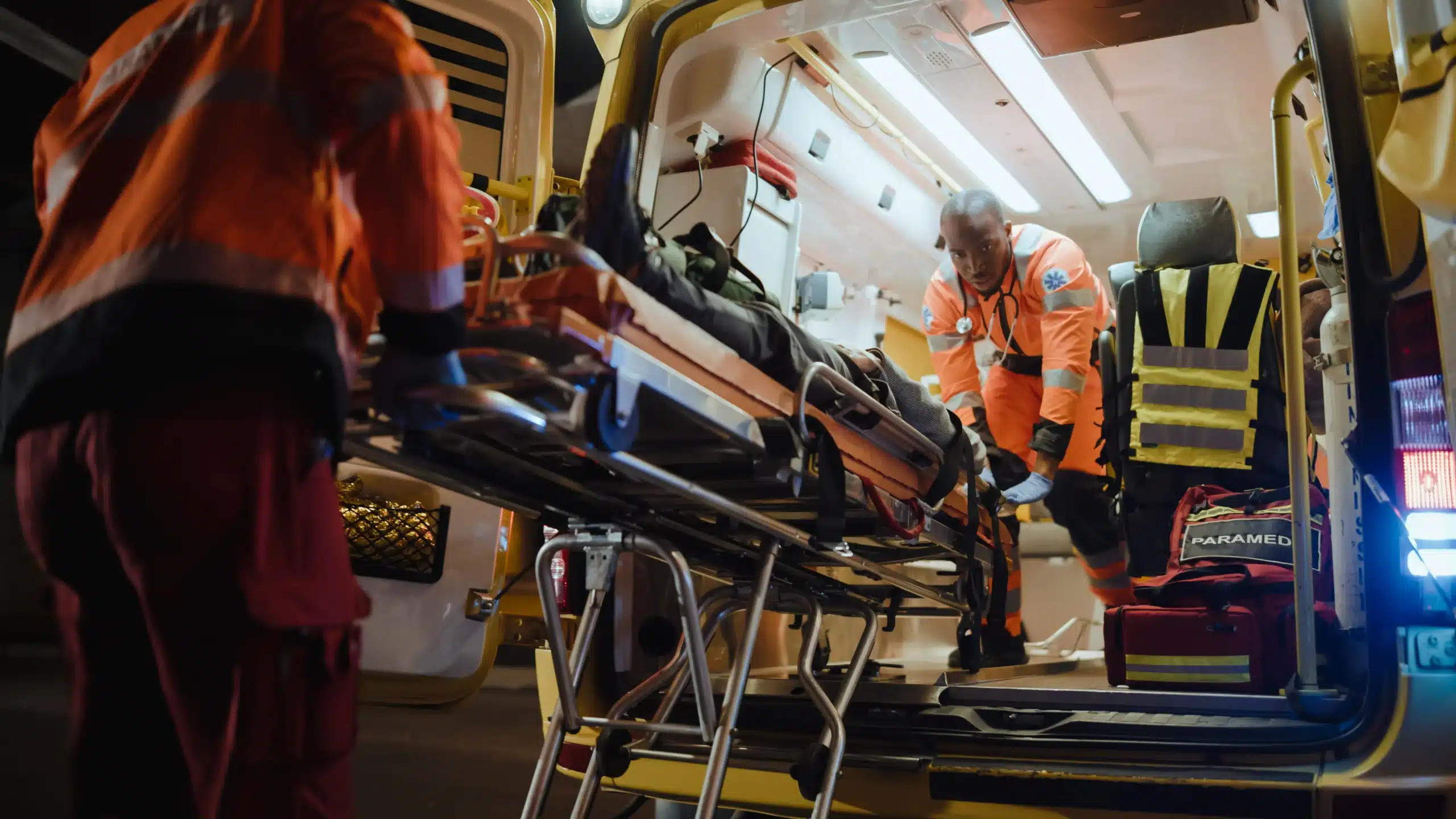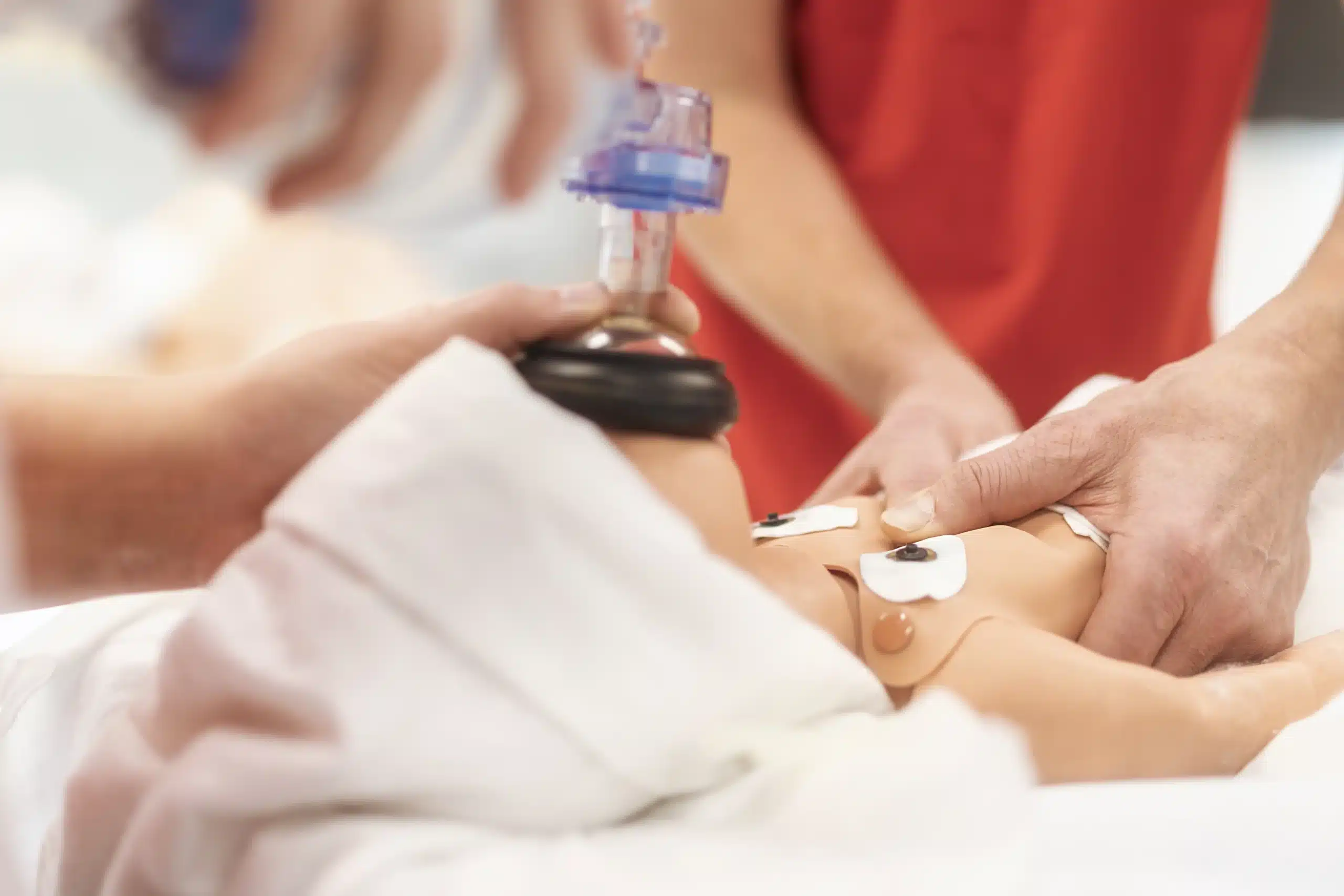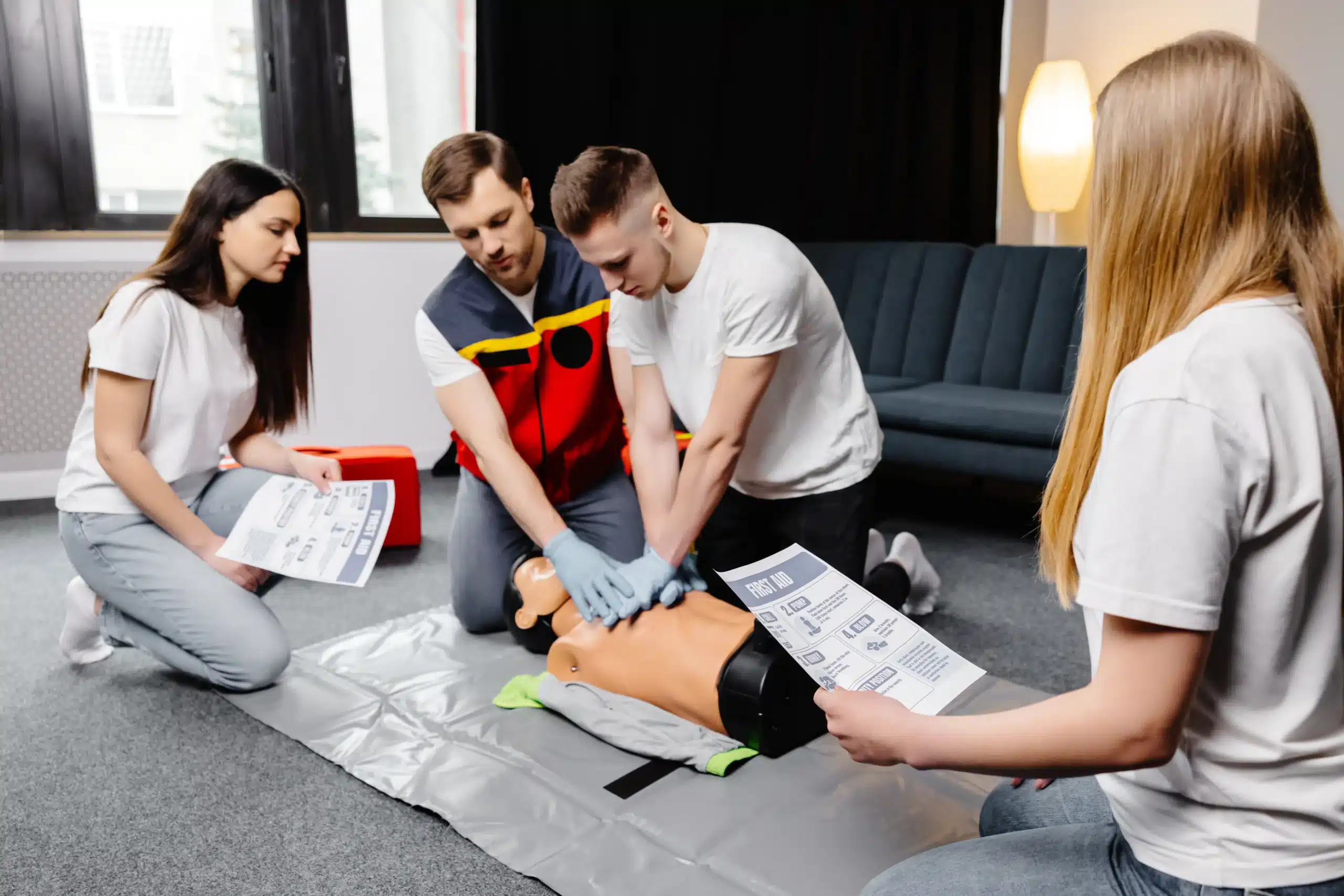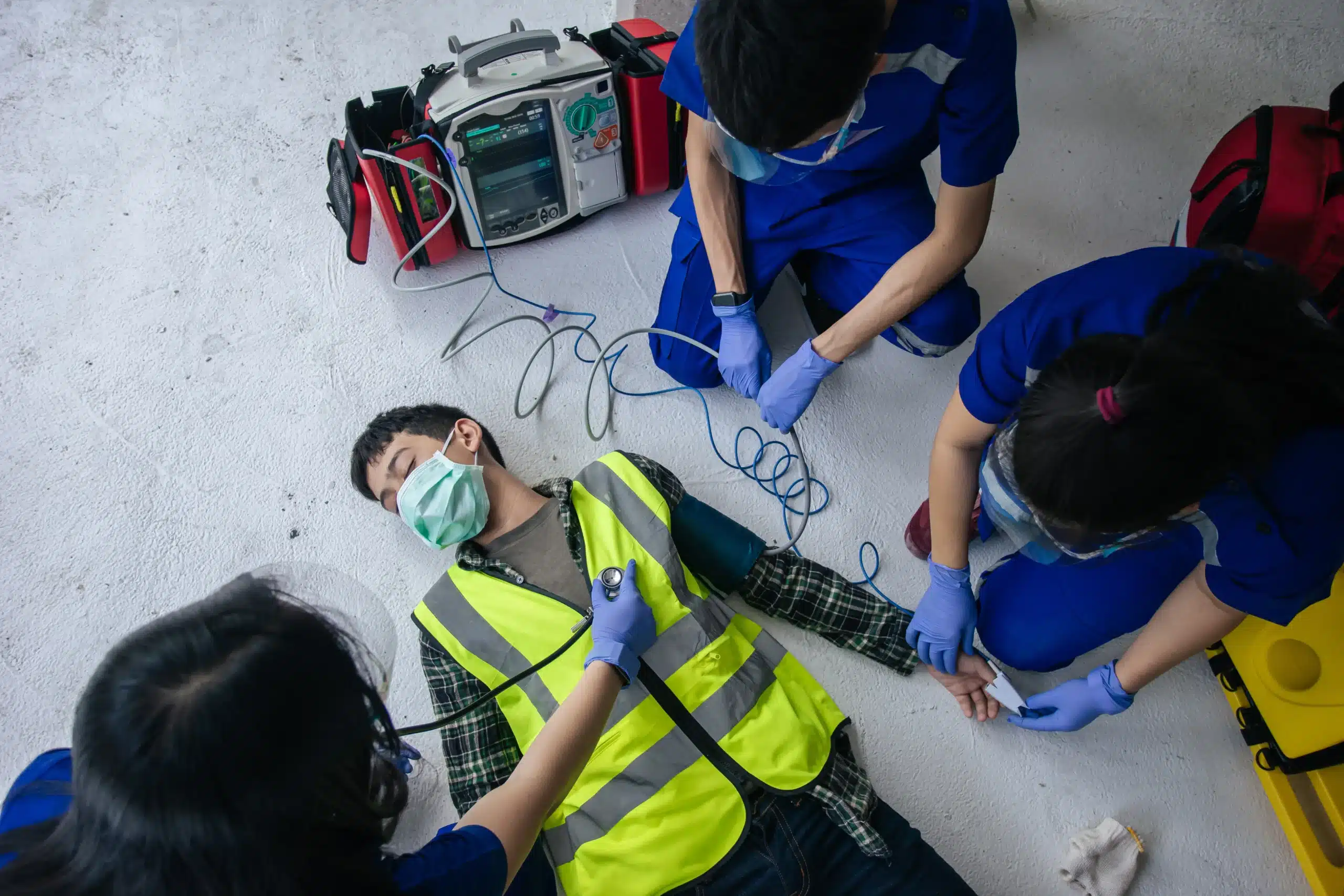As a healthcare professional, your skills are your most valuable asset. Staying up-to-date with the latest procedures is crucial, especially when it comes to life-saving techniques like Basic Life Support (BLS). If your BLS certification is nearing its expiration date, or if you’re simply looking to refresh your knowledge, finding a reliable “BLS renewal near me” is probably top of mind. This guide breaks down everything you need to know about BLS renewal, from understanding the process to finding the right course and preparing for a successful recertification experience. We’ll cover key topics, compare different learning formats, discuss costs and discounts, and even offer tips on choosing the best provider for your needs. Let’s ensure you’re always equipped to provide the highest quality of care.
Key Takeaways
- Stay current with your BLS certification: It’s not just a requirement for many healthcare jobs; it’s a commitment to providing the best possible care. Regular renewal keeps your skills sharp and ensures you’re ready to handle emergencies effectively.
- Find a BLS renewal course that fits your needs: Think about your learning style and schedule when choosing between in-person, online, or hybrid options. Consider factors like cost, location, and provider reputation to make the right choice.
- Prepare for your course by reviewing key materials: Gather your current BLS card, brush up on the latest guidelines, and understand the course format. A little prep work can make your renewal process smoother and more efficient.
What is BLS Renewal?
What is BLS & Why Renew?
Basic Life Support (BLS) certification equips healthcare providers, lifeguards, fitness instructors, and other professionals with the skills to respond to medical emergencies. It emphasizes early recognition and intervention for respiratory and cardiac arrest. Think of it as your toolkit for providing immediate care during critical moments. BLS certification is typically valid for two years. There’s no grace period after expiration—staying current is key. Renewal involves completing a refresher course and passing an exam to demonstrate continued competency. This ensures you’re always prepared to deliver effective, lifesaving care.
Why is renewing so important? Maintaining a current BLS certification demonstrates your commitment to providing high-quality care and adhering to the latest guidelines. For healthcare professionals, it’s often a mandatory requirement for employment. Regular renewal ensures you’re up-to-date with the latest techniques and procedures, ultimately improving patient outcomes. Beyond professional obligations, BLS renewal reinforces your confidence and preparedness, empowering you to act quickly and effectively in emergencies.
Stay Current with BLS
Keeping your BLS certification current isn’t just a checkbox—it’s an investment in your ability to provide critical care. Regular renewals reinforce and refine your skills, ensuring you’re always ready to respond effectively. Think of it as a tune-up for your lifesaving abilities. Consistent practice and updated knowledge are crucial for maintaining preparedness in emergency situations. Whether you’re a seasoned healthcare professional or someone who needs BLS for their job, staying current is a commitment to maintaining high standards of care and ensuring the best possible outcomes. It also demonstrates your dedication to lifelong learning and professional development in emergency medical care. Regular renewal shows you take your role seriously and prioritize patient well-being. Consider exploring group discounts to make the recertification process more affordable for your team.
Find Top BLS Renewal Providers
Finding the right BLS renewal provider is key to a smooth recertification process. Here’s a look at some popular options:
Morgan Hill CPR Classes
Morgan Hill CPR Classes offers BLS renewal courses designed for healthcare professionals, first responders, educators, and the general public. This ensures participants receive comprehensive instruction and supervised practice. As a woman-owned AHA Training Center with a low-price guarantee, they offer classes daily in over 60 cities. The Morgan Hill location conveniently serves Morgan Hill, San Jose, and Gilroy, CA.
American Heart Association
The American Heart Association (AHA) provides a standardized BLS curriculum widely accepted across the healthcare industry. They offer both BLS Provider and BLS Renewal courses, both leading to the same certification. The AHA website is a great resource for finding certified training centers near you.
American Red Cross
The American Red Cross is another well-known organization offering BLS recertification. With online and in-person classes, the Red Cross offers flexibility for busy professionals. Their First Aid/CPR/AED programs have been a trusted resource for businesses and organizations for over a century.
Local Hospitals & Medical Centers
Many local hospitals and medical centers offer BLS renewal courses, often as part of their staff training programs. Check with hospitals in your area to see if they offer
Compare BLS Renewal Formats
Choosing the right BLS renewal format depends on your learning style, schedule, and budget. Let’s break down the pros and cons of in-person, online, and hybrid options to help you decide what’s best for you.
In-Person Classes
In-person BLS renewal courses offer a hands-on learning experience with direct interaction with an instructor. This format is ideal for those who thrive in a traditional classroom setting and prefer immediate feedback. You’ll practice skills on mannequins and get real-time corrections, ensuring you’re fully prepared for real-life scenarios. Morgan Hill CPR Classes offers in-person BLS training, providing students with personalized instruction and hands-on practice. The American Red Cross also provides in-person BLS renewal courses. These courses typically cost around $70.
Online Courses
Online BLS renewal courses provide flexibility and convenience. You can learn at your own pace, fitting the training around your busy schedule. This format often involves interactive modules, videos, and quizzes to reinforce your learning. While online courses offer greater flexibility, they may not provide the same level of hands-on practice as in-person classes. The American Healthcare Academy offers online BLS renewal for those seeking a self-paced option.
Hybrid Options
Hybrid BLS renewal courses combine the best of both worlds. You’ll complete the cognitive portion of the course online, learning the material at your own speed. Then, you’ll attend an in-person skills session to demonstrate your proficiency and receive feedback from a certified instructor. The American Heart Association offers hybrid BLS renewal courses, giving you the convenience of online learning with the benefit of hands-on practice. This blended approach caters to various learning styles and schedules.
BLS Renewal Costs & Discounts
Knowing the typical costs associated with BLS renewal and available discounts helps you budget effectively and find the best value for your training.
Average Costs
BLS renewal courses in San Jose generally cost around $70. You can typically expect BLS certification courses to range from $70 to $100, but checking directly with the training center, like Morgan Hill CPR Classes, for the most up-to-date pricing is always recommended. Costs can vary based on the provider, location, and course format. For those looking for BLS renewal in San Jose, this guide offers helpful information on local options and pricing. More general information on BLS training can be found in this practical guide.
Group Discounts & Offers
If you’re renewing BLS certification with a group, explore potential discounts. Many training centers offer reduced rates for group bookings. Contacting providers directly to discuss group discounts is a smart way to save on your renewal training. Morgan Hill CPR Classes offers discounts for group bookings, making it a cost-effective option for teams.
Low Price Guarantees
Some training centers offer a low-price guarantee, ensuring you receive the most competitive pricing for your BLS renewal. Morgan Hill CPR Classes offers a low-price guarantee on their courses. Inquire about any low-price guarantees or special offers when comparing providers. This can help you find affordable, high-quality training options in your area. The American Red Cross also provides BLS renewal and recertification, making it another provider to consider when exploring your options.
BLS Renewal Course Content & Prerequisites
Eligibility
Thinking about renewing your BLS certification? First, double-check your current card’s expiration date. BLS certification is valid for two years, and there’s no grace period. Once it expires, you’ll need to complete the full BLS course and exam again, not just a refresher. So, mark your calendar and plan to renew before your certification lapses.
Key Renewal Topics
Even if you’re a seasoned pro, the BLS renewal course covers essential updates to protocols, guidelines, and best practices. Expect a review of core concepts like high-quality CPR for adults, children, and infants, along with the proper use of an AED and relief of choking. You’ll also cover critical skills such as recognizing and responding to life-threatening emergencies, including heart attacks and strokes. The curriculum may also include updates on team dynamics during resuscitation and other advanced techniques. For a more detailed overview, take a look at the American Heart Association BLS page.
Hands-On Practice
BLS renewal isn’t just about reviewing the theory; it’s about maintaining those crucial hands-on skills. The renewal course includes plenty of opportunities to practice CPR techniques, using an AED, and other essential first-aid skills. This practical training is vital for building muscle memory and confidence, ensuring you can respond effectively in a real emergency. You’ll be assessed on your skills, so come prepared to participate actively. The BLS Renewal Course takes approximately three hours to complete, including skills practice and testing. If you need a refresher before class, our course prep materials can help you brush up on key concepts.
Choose the Right BLS Renewal
Picking the right BLS renewal course isn’t just about checking a box; it’s about ensuring you’re truly prepared for an emergency. Let’s break down how to find the perfect fit for you.
Factors to Consider
BLS training empowers you to handle emergencies. It provides essential skills like CPR, AED use, and first aid, applicable in various settings. Think about where you’ll most likely use these skills—at home, in the workplace, or maybe even out in your community. This will help you focus on finding a course that emphasizes the scenarios most relevant to you. For example, healthcare providers might need a more in-depth understanding of certain procedures than someone renewing their certification for general knowledge. Consider the course preparation involved as well. Are there any prerequisites or materials you need to review beforehand? Setting yourself up for success starts with choosing a course that aligns with your specific needs.
Evaluate Provider Reputation
Look for a reputable provider recognized and trusted in the community. In San Jose, both the American Heart Association (AHA) and the American Red Cross offer BLS renewal courses. Morgan Hill CPR Classes offers a variety of AHA-certified courses, including BLS, ACLS, PALS, and First Aid. Reading reviews and checking out a provider’s history can give you a good sense of their teaching quality and overall credibility. Make sure the provider offers the certification you need—whether it’s AHA, Red Cross, or another recognized organization. A provider’s reputation speaks volumes about the quality of training you can expect.
Match Your Learning Style & Schedule
Finding a course that meshes with your learning style and schedule is key. Do you thrive in a hands-on, in-person setting? Or do you prefer the flexibility of online learning? Many providers offer both options, even hybrid formats that combine online modules with in-person skills sessions. Also, consider the cost. You can typically expect BLS certification courses to range from $70 to $100, but checking directly with the training center for the most up-to-date pricing is always a good idea. At Morgan Hill CPR Classes, we emphasize hands-on training in our BLS certification courses. Don’t forget to factor in things like class times, location, and overall course duration to make sure it fits seamlessly into your life. If you’re looking for ways to save, check if the provider offers group discounts or has a low price guarantee. Your time is valuable, so choose a format and schedule that respects your commitments.
Prepare for Your BLS Renewal Course
Getting ready for your BLS renewal is straightforward. A little prep work makes for a smooth and successful recertification.
Gather Your Documents
Before your BLS renewal course, locate your current BLS provider card. While some providers might not require it, having your card handy streamlines the check-in process and confirms your existing certification. If you’re renewing through a different training center than the one you originally certified with, it’s especially helpful. For instance, if you earned your initial BLS certification through the American Heart Association and are now renewing with Morgan Hill CPR Classes, bringing your AHA card ensures a seamless transition.
Review Current Guidelines
Brushing up on current BLS guidelines before your course is a smart move. This refreshes your knowledge and ensures you’re up-to-date on any changes in procedures. Reviewing the guidelines can make the renewal course itself more efficient, allowing you to focus on mastering the skills. You can find the most current guidelines on the American Heart Association website.
Course Duration & Format
BLS renewal courses are designed to be concise and efficient. Most take about three hours, covering essential skills practice and testing. Check with your chosen provider, such as Morgan Hill CPR Classes, for specifics on their course duration and format. Knowing the time commitment helps you plan accordingly.
Related Articles
- BLS Renewal in Morgan Hill: A Essential Guide
- BLS Renewal San Jose: Your Easy Guide – Morgan Hill CPR Classes
- BLS Recertification Near Me: A Complete Guide – Morgan Hill CPR Classes
Frequently Asked Questions
How long is my BLS certification valid? BLS certification is typically valid for two years. There’s no grace period after it expires, so be sure to renew before the expiration date.
What if my BLS certification has already expired? If your BLS certification has expired, you’ll need to take the full BLS course again, not just a renewal course. Treat it as starting fresh to ensure you’re up-to-date on the latest guidelines and techniques.
What’s the difference between an in-person and online BLS renewal course? In-person courses offer hands-on practice and direct interaction with an instructor, while online courses provide flexibility and self-paced learning. Consider your learning style and schedule when choosing the format that suits you best. Some providers also offer hybrid courses that combine online learning with in-person skills sessions.
How much does BLS renewal cost? The cost of BLS renewal varies depending on the provider, location, and course format. It typically ranges from $70 to $100. Check with your chosen provider for their specific pricing. Many providers offer group discounts, so inquire about those if you’re renewing with colleagues.
How can I prepare for my BLS renewal course? Gather your current BLS provider card (if you have it), review the latest BLS guidelines, and familiarize yourself with the course format and duration. Some providers offer prep materials, so check if those are available. Being prepared will help you get the most out of your renewal course.
